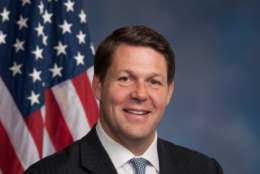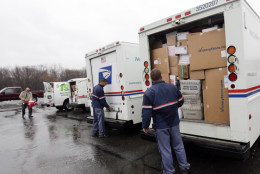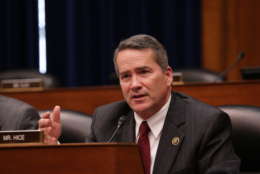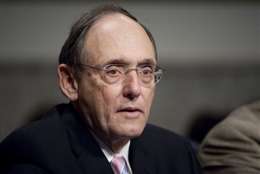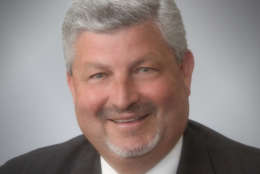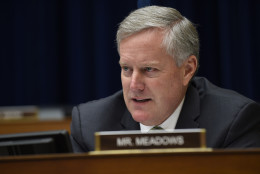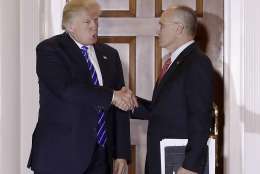Workforce Rights/Governance
-
White House Press Secretary Sean Spicer said the resolution is part of a package, signed by President Donald Trump, to "roll back job killing rules."
March 27, 2017 -
A new bill that would limit how much time doctors, nurses and other employees at the Veterans Affairs Department could spend on union business has support now from VA itself. The department said having its employees spend 100 percent of their hours on official time is "necessary, reasonable and in the public's best interest."
March 22, 2017 -
With the President's fiscal 2018 budget expected later this week, lawmakers and federal employee unions are gearing up for what could be a long and contentious fight over civilian agency spending and possible cuts to other federal employee programs. The National Active and Retired Federal Employees Association says the 2018 budget is its biggest challenge this year.
March 14, 2017 -
Senior Correspondent Mike Causey says when it comes to workplace sexual harassment, most men are still Cro-Magnons.
March 13, 2017 -
Official time has been a hot topic for House lawmakers this week. A new bill would limit official time for all employees at the Veterans Affairs Department and would set special limits for doctors and other workers involved in direct patient care.
March 10, 2017 -
The U.S. Postal Service is turning around its reputation — from the agency whose employees managed to coin the phrase "going postal," to an organization that now quickly processes equal employment opportunity complaints. USPS is offering those services to other agencies.
March 09, 2017 -
Two lawmakers have introduced legislation that would leverage pensions and benefits in an effort to reign in use of official time and has resulted in hours of debate and a deeper divide over the subject of unions.
March 09, 2017 -
Some advocates of the House Veterans Affairs Committee's new employee accountability bill say it's different enough from previous attempts to tackle this issue and should assuage past concerns. But others fear the legislation revives familiar worries.
March 03, 2017 -
About 58 percent of federal employees say their workloads have increased since President Donald Trump authorized a temporary hiring freeze for some agencies, according to a recent survey from the National Treasury Employees Union.
March 01, 2017 -
The White House's chief digital officer stepped down after only a month on the job. Sources familiar with the departure say Gerrit Lansing did not want to give up his ties to an online donation platform he helped start.
February 22, 2017 -
More than 80 Twitter accounts claiming to represent various federal organizations and employees, many of them national parks, exist in opposition to the Trump administration and its policies.
February 21, 2017 -
A judged ruled in favor of thousands of people who claimed the federal government was wrong not to pay them on time for their work during the first week of the government shutdown.
February 17, 2017 -
A recent Government Accountability Office report on the Veterans Affairs Department and its employees' use of official time is renewing a debate among lawmakers: Does official time have a place within agency operations, and how much time is too much?
February 16, 2017 -
Andrew Puzder withdrew his nomination to be Labor Secretary, after Labor Department employees expressed concerns ahead of his confirmation hearing. The letter disclosed a number of misgivings about Puzder’s fitness for the job.
February 15, 2017 -
Agency culture and a poor understanding of the disciplinary process are some of the biggest challenges supervisors, managers and senior executives said they face when trying to fire an employee for misconduct. The Merit Systems Protection Board surveyed 10,000 federal managers about their understanding and opinions of civil adverse action procedures.
February 14, 2017





